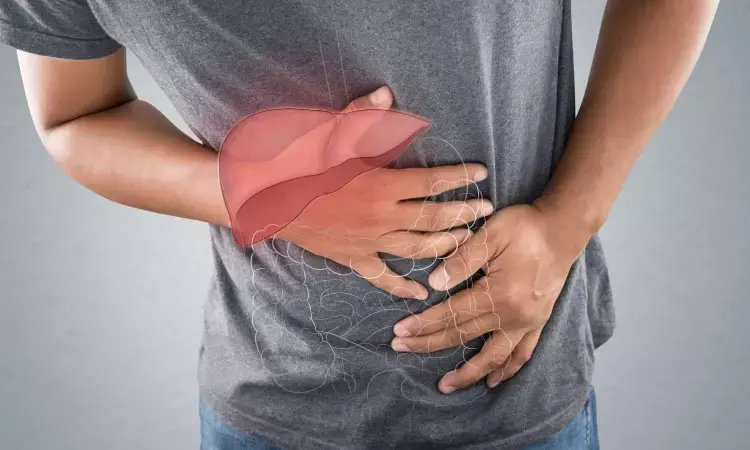- Home
- Medical news & Guidelines
- Anesthesiology
- Cardiology and CTVS
- Critical Care
- Dentistry
- Dermatology
- Diabetes and Endocrinology
- ENT
- Gastroenterology
- Medicine
- Nephrology
- Neurology
- Obstretics-Gynaecology
- Oncology
- Ophthalmology
- Orthopaedics
- Pediatrics-Neonatology
- Psychiatry
- Pulmonology
- Radiology
- Surgery
- Urology
- Laboratory Medicine
- Diet
- Nursing
- Paramedical
- Physiotherapy
- Health news
- Fact Check
- Bone Health Fact Check
- Brain Health Fact Check
- Cancer Related Fact Check
- Child Care Fact Check
- Dental and oral health fact check
- Diabetes and metabolic health fact check
- Diet and Nutrition Fact Check
- Eye and ENT Care Fact Check
- Fitness fact check
- Gut health fact check
- Heart health fact check
- Kidney health fact check
- Medical education fact check
- Men's health fact check
- Respiratory fact check
- Skin and hair care fact check
- Vaccine and Immunization fact check
- Women's health fact check
- AYUSH
- State News
- Andaman and Nicobar Islands
- Andhra Pradesh
- Arunachal Pradesh
- Assam
- Bihar
- Chandigarh
- Chattisgarh
- Dadra and Nagar Haveli
- Daman and Diu
- Delhi
- Goa
- Gujarat
- Haryana
- Himachal Pradesh
- Jammu & Kashmir
- Jharkhand
- Karnataka
- Kerala
- Ladakh
- Lakshadweep
- Madhya Pradesh
- Maharashtra
- Manipur
- Meghalaya
- Mizoram
- Nagaland
- Odisha
- Puducherry
- Punjab
- Rajasthan
- Sikkim
- Tamil Nadu
- Telangana
- Tripura
- Uttar Pradesh
- Uttrakhand
- West Bengal
- Medical Education
- Industry
Ethyl lactate ameliorates liver injury and alcohol-associated liver disease, reveals research

A research team led by Prof. LI Yu from the Shanghai Institute of Nutrition and Health (SINH) of the Chinese Academy of Sciences (CAS) and collaborators have discovered that ethyl lactate, a key nonethanol ingredient found in distilled liquors, ameliorates alcoholic hepatic steatosis (fatty liver), inflammation, and acute-on-chronic liver injury in alcohol-associated liver disease (ALD). The study was published online in Advanced Science.
Increasing global alcohol exposure has aggravated the global prevalence of ALD. Aberrant upregulation of hepatic lipogenesis induced by excessive alcohol consumption is a critical driver of the progression of ALD, and the severity of ALD is highly dependent on the level of alcohol intake. Distilled spirits, with higher ethanol content than wine and beer, may increase the potential for more ethanol ingestion. Currently, there are no effective therapeutic approaches to limiting lipogenesis in ALD patients.
Alcoholic beverages are complex mixtures of water, ethanol, and nonethanol ingredients. Due to their various raw materials, fermentation processes, and aging processes, distilled spirits produce abundant nonethanol ingredients such as esters, acids, higher alcohols, and aldehydes. These nonethanol ingredients determine the quality, type, taste, and flavor of various alcoholic beverages. However, whether nonethanol ingredients in alcoholic beverages regulate the pathogenesis of ALD has largely remained unclear.
In this study, researchers first identified 40 chemical compounds in five widely consumed distilled spirits, i.e., whisky, brandy, baijiu, rum, and vodka, using gas chromatography with flame ionization detection (GC-FID) and high-performance liquid chromatography with ultraviolet detection (HPLC-UV). Thirteen chemical compounds were identified as the main nonethanol ingredients of distilled spirits, based on their concentrations.
To investigate the roles of these nonethanol ingredients in regulating the pathogenesis of ALD, the researchers performed in vivo screening by using a mouse model of chronic-plus-binge ethanol feeding (also known as the Gao-Binge Model). They found that ethyl lactate, alone among these thirteen compounds, ameliorates hepatic steatosis, inflammation, and acute-on-chronic liver injury in a dose-dependent manner.
Mechanistically, researchers found that ethyl lactate ameliorates hepatic steatosis and acute-on-chronic liver injury in ALD by inducing fibroblast growth factor 21 (FGF21), which inhibits alcohol-induced aberrant activation of mTORC1 (the mechanistic Target of Rapamycin Complex 1, a protein complex that serves as a cellular regulator of growth, metabolism, and protein synthesis), and hepatic lipogenesis.
Interestingly, ethyl lactate is widely present not only in alcoholic beverages but also in other fermented foods such as vinegar, bread, and sausages. It is also a recognized food flavoring agent.
This study advances the understanding of the foodborne small molecule ethyl lactate in regulating the progression of ALD, and may provide a new strategy for the prevention and treatment of ALD as well as obesity-related metabolic disorders.
Reference:
Yang Jiang, Shuang Wei, Shiming Shen, Yuxiao Liu, Weitong Su, Dong Ding, Zengpeng Zheng, Haokai Yu, Tingting Zhang, Qiuli Yang, Jiuxiang Zhao, Yi Shen, Xia Fang, Liangcai Lin, Dongguang Xiao, Aoyuan Cui, Qin Wan, Yadong Zhang, Yu Li, Cuiying Zhang, Ethyl Lactate Ameliorates Hepatic Steatosis and Acute-on-Chronic Liver Injury in Alcohol-Associated Liver Disease by Inducing Fibroblast Growth Factor 21, Advanced Science, https://doi.org/10.1002/advs.202409516
Dr Kamal Kant Kohli-MBBS, DTCD- a chest specialist with more than 30 years of practice and a flair for writing clinical articles, Dr Kamal Kant Kohli joined Medical Dialogues as a Chief Editor of Medical News. Besides writing articles, as an editor, he proofreads and verifies all the medical content published on Medical Dialogues including those coming from journals, studies,medical conferences,guidelines etc. Email: drkohli@medicaldialogues.in. Contact no. 011-43720751


